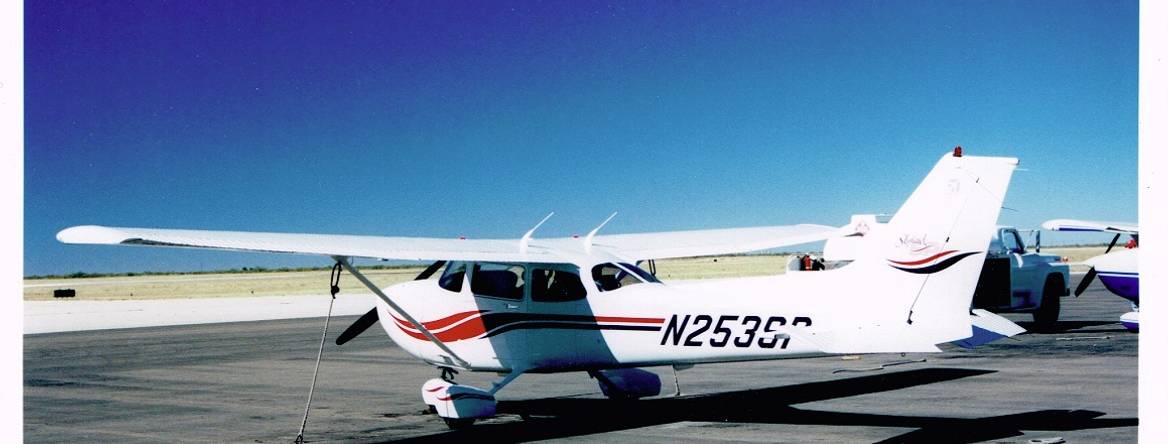National authorities suspect that “Primeiro Comando da Capital” (PCC), a powerful Brazilian criminal organization, is behind the theft of several aircrafts in the northern province of Chaco in Argentina. The trend has raised alarms over the PCC’s continued regional and international growth.
PCC Presence on the Border with Paraguay Triggers Alerts
Growing concerns about the presence of the transnational gang in the province of Chaco have triggered the exchange of information between Argentine security forces and their Brazilian and Paraguayan counterparts. The theft of small aircrafts at the hands of PCC members in Argentina and Paraguay seems to be the current form of trafficking cocaine from Bolivia to Paraguay, Brazil and Argentina, as prominent trans-shipment location for cocaine destined for Europe. Two cases were registered in flying clubs in Chaco since last Christmas with the latest case ending in a tragic way after the Cessna 206 crashed shortly after taking off in a hurry, killing the five men who had seized the aircraft in Villa Ángela.
What these robberies share in common is the type of aircraft used: the single-engine Cessna aircraft that is commonly associated with drug trafficking operations. This particular aircraft is capable of making low-level flights to cross the border from one country to another and is highly valued by drug traffickers due to its light weight, high load capacity and long range.
PCC Expansion
Six days before the theft of the aircraft in Villa Ángela, a similar robbery occurred on the other side of the border in Paraguay according to authorities of the national counter-narcotics secretariat. In that occasion, five people armed with “Deray” tactic shotguns, rifles and wearing bulletproof vests from the police investigation department stole a Cessna 182 plane in Colonia San Miguel, in Alto Paraná.
The suspicion of PCC involvement in this particular theft is evidenced by the interception of two trucks carrying pistols, shotguns and rifles concealed in a shipment of rice by Brazilian military police in the state of Parana before they reached the hands of PCC members. This event took place a few days earlier where they found the same tactical shotgun model used in the plane theft among the rice cargo.
Last April, an operation led by Interpol in the tri-border area of Argentina, Brazil, and Paraguay led to the arrest of members of PCC involved in firearms trafficking. Moreover, the same operation targeting illicit firearms resulted in a massive drug seizure; showing evidence that these crimes are likely intertwined.
The evidence of successful expansion into Paraguay, shows the PCC seeking control of the smuggling routes and direct contacts with source producers. This builds on their established control of several trafficking corridors to Europe it already manages the logistical distribution of cocaine from Bolivia and Perú through Paraguay and on to the port of Santos in Argentina.
Flights for Risk Avoidance and Port Diversification
As the organization moves into neighbouring countries, their members bring with them tactics and skills used in their home country such as prison uprisings and the robbery of armoured bank trucks. Apparently, the new modus operandi seems to be the theft of light aircrafts for cocaine trafficking to European countries – using the planes to shuttle narcotics to other, perhaps less notorious ports.
It is common knowledge that the PCC has been trying to expand its presence in Argentina for years. With direct connections with production zones in Colombia, Peru and Bolivia, the PCC is seeking new routes for trafficking cocaine to Europe due to the increasing number of cocaine seizures in the ports of Brazil.
As a result of this, there has been a shift of drug trafficking routes southward through the use of non-traditional ports of cocaine departure, favouring low risk over logistical costs. Indeed, powerful criminal syndicates like the PCC are prioritizing the ports of Buenos Aires and Montevideo due to the lack of control at these ports and a lack of reputation for drug exportation to re-export cocaine undetected.
The past July, another plane crashed in Chaco loaded with more than 300 kilos of cocaine. The Cessna 210 model had been stolen in an aeroclub in La Paz, Bolivia. Apparently, the cargo belonged to the Lima-Lobo clan, one of Bolivia´s most powerful narco-clans with strong ties with the PCC. There are strong indications that the destination of the transported drugs could be the Argentina port city of Rosario as a transit point to Europe.
Countering Unauthorised Civil Aviation Flights
With the Presidential elections just around the corner, the current context presents fertile ground for the re-emergence of a debate centred on promoting the involvement of the armed forces in counter-narcotics policies. It must be noted that, historically, Argentina has rejected a security agenda designed to combat drug trafficking through the training of armed police in military operations. For that reason, Argentina possesses a legal framework that formally constrains the role of the armed forces in the fight against drug trafficking.
However, s previous Argentine government had published a decree modifying domestic armed forces policy to permit the shooting down of planes suspected of carrying illegal drugs. A decree that later was abolished by President Alberto Fernandez, putting back strict limits to the intervention of the armed forces in internal security and counter-drug strategies.
In a country with a deep distrust of the armed forces, suggesting a change in the role of the military and reviewing the role played by the armed forces in the fight against drug-trafficking would raise the alarm bells for countless human rights organisations. Furthermore, a policy of taking down narco-flights is unlikely to prove successful.
In considering policies to counter the trend, it is important to highlight the fact that interception in the air has characteristics that differ from those carried out in the terrestrial and maritime domain. Indeed, it is possible to intercept a ship using small-calibre ammunition without sinking the ship and force its arrest with the whole crew safely rescued. Also, it is possible to stop a car on the road by blocking the traffic without harming the occupants of the vehicle. But, targeting civilian airplanes using military means leads to the certain death of the crew. In plain terms, it is a summary execution without a fair trial.
Consequently, the debate should be centred on designing a serious national plan to combat narcotics through active cooperation with neighbouring countries. A plan aimed at stopping the expansion of the PCC over neighbouring countries due to the lack of state capacities and endemic corruption among local elites and security forces. However, to directly counter the ferrying of narcotics by small aircraft, the tri-border states can implement systems of rigorous radar control – similar to that implemented by the United States National Guard. Analysis by dedicated teams of radar and aviation analysts – though tasked with finding but a single plane among thousands of legitimate flights – best positions authorities to track, identify and peacefully intercept the aircraft. To fully leverage benefits of such an enhanced system, greater collaboration among any such units must be established between bordering authorities, ensuring prompt and effective communication on risks and intelligence.
Damián Gariglio is a member of the network of experts of the Global Initiative against Transnational Organised Crime (GI-TOC). He is currently working in Buenos Aires for the Centre for International Political Studies (CEPI) as a researcher at the University of Buenos Aires.
Main image Credit: ‘Cessna 3′ by Brian McConnell via Flickr.
The views expressed in this article are those of the author and do not necessarily reflect the views of RUSI, ECPR, Focused Conservation or any other institution.
Written by
Damian Gariglio
SHOC Network Member - Practitioner / Researcher


